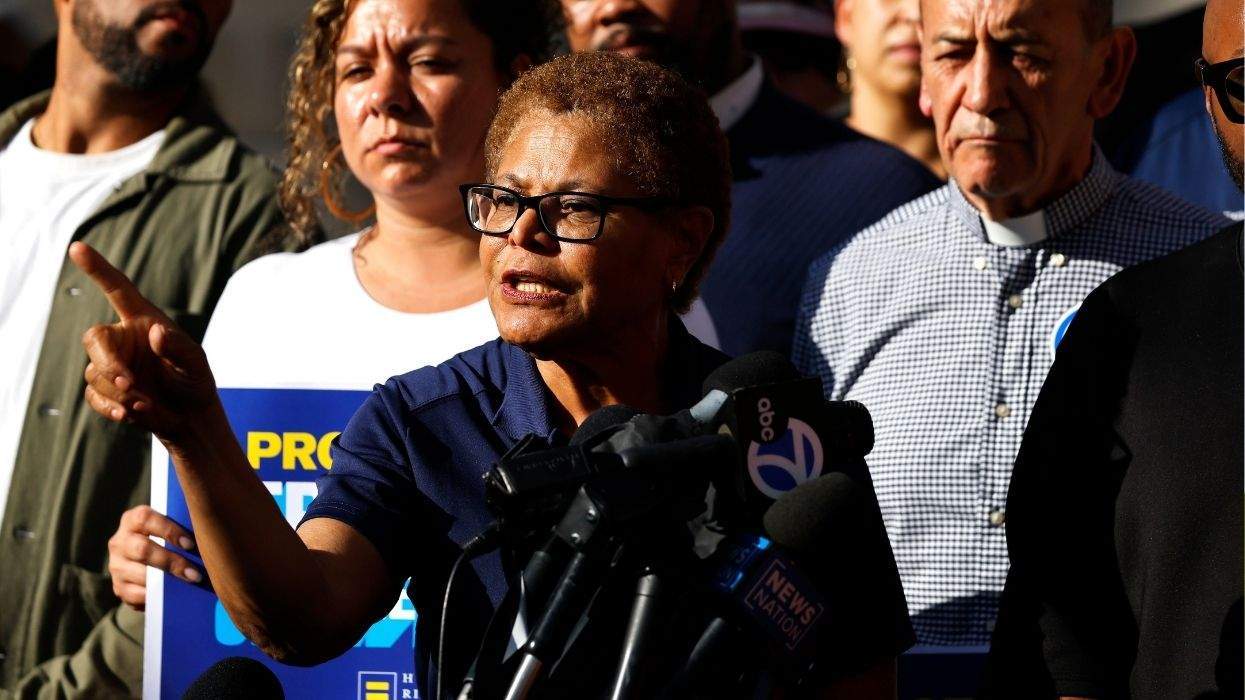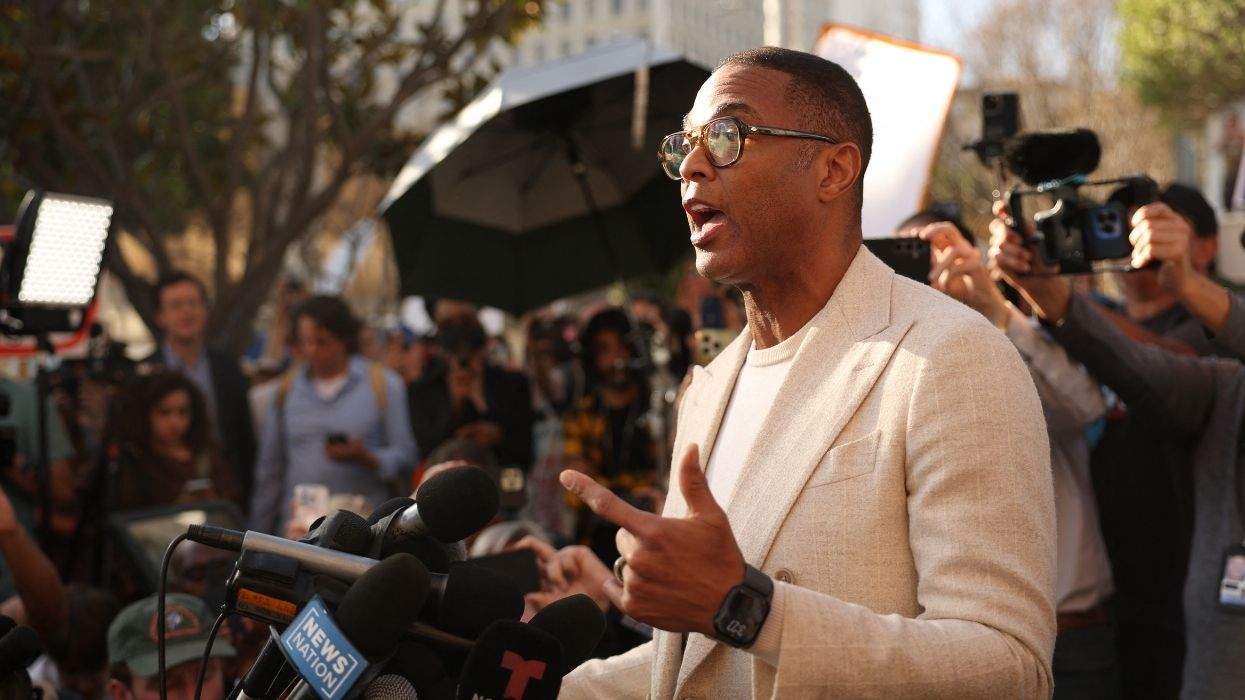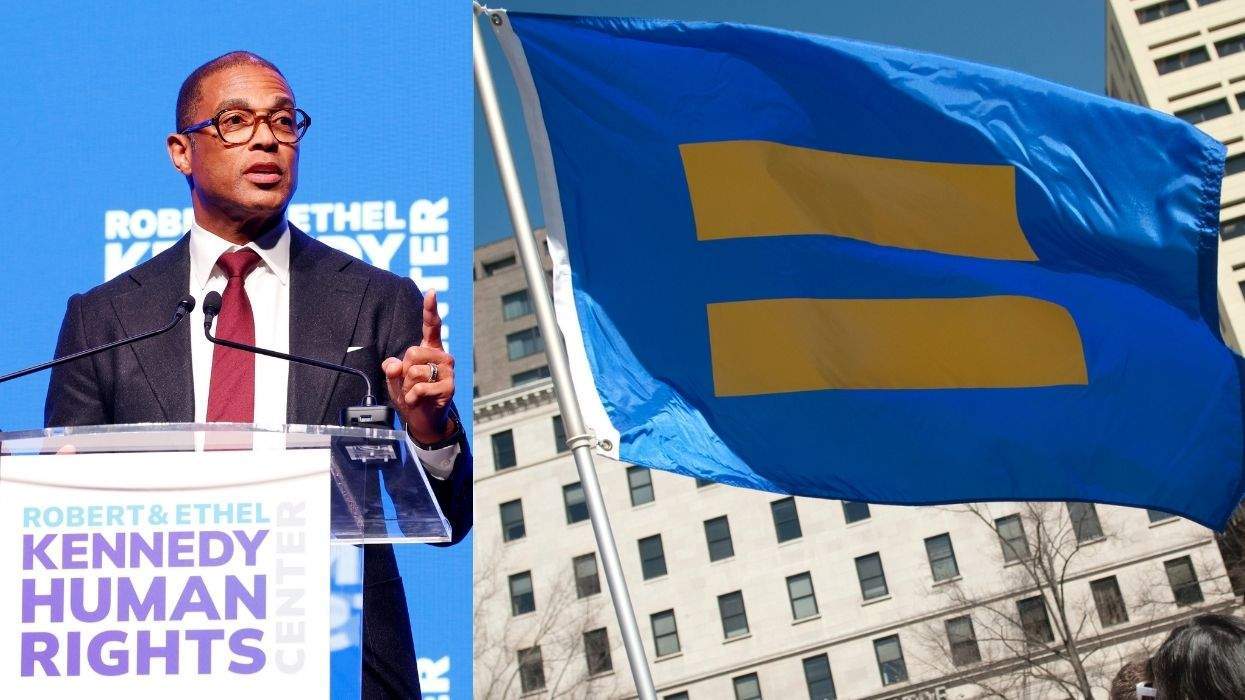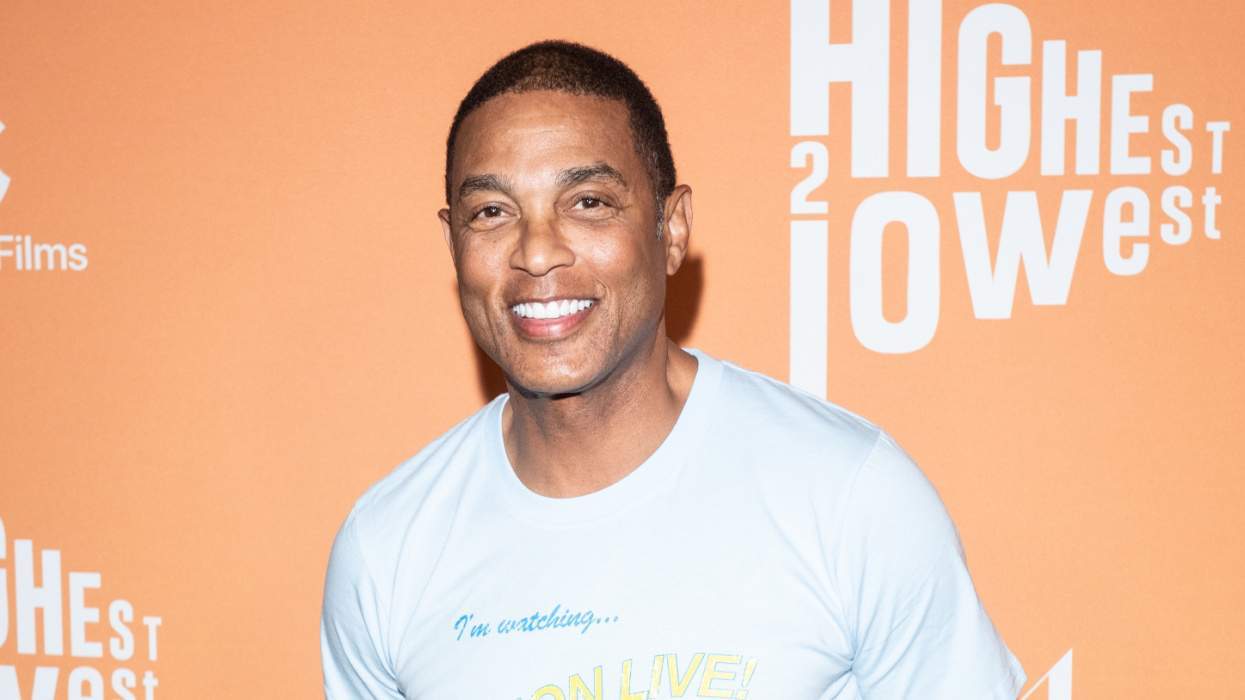Visibility of transgender people nationwide continues to increase, but presence in public is a double-edged sword.
Increased perception of transgender people is essential to public acceptance and understanding as well as critical to advocacy for trans rights politically. But as awareness of transgender people’s place in society increases, so too does the threat of hate violence against them.
Keep up with the latest in LGBTQ+ news and politics. Sign up for The Advocate's email newsletter.
The estimated 1.6 million people over the age of 13 in the U.S. who are inhabiting transgender bodies are experts at code-switching and are constantly weighing the pros and cons of disclosure, well aware of the brutal trade-off between being true to themselves and risking assault.
In Los Angeles, the issue is even more apparent. Hate crimes against transgender people in L.A. County reached a 20-year high in 2022, with 44 recorded.
Carla Ibarra, a Filipino transgender woman who serves as the LGBTQIA+ Liaison of the City of Los Angeles’ Civil + Human Rights and Equity Department, described the effort behind existing as a trans person in public life.
“It’s just exhausting,” Ibarra said. “Even I, who is in the city service, who has the benefits of being a city employee and is surrounded by amazing and supportive peers, have experienced the very brunt of trauma that comes as a trans person — the constant stress of having to be on hypervigilant mode, to have to always watch my back.”
Reporting hate crimes, but not to police
The threat of violence as a result of being trans compounds with each facet of identity. Data shows trans people of color, particularly transgender women, face the greatest risk of attacks and battle unique challenges when it comes to access to medical care, discrimination at work, and bias from law enforcement.
“The police have been very violent towards our community,” said Bamby Salcedo, a Mexican-born transgender activist who leads L.A.-based national advocacy group TransLatin@ Coalition. “A lot of times when we call the police, the police often re-victimize us, and blame us for being who we are. They have even made statements that if we weren’t who we are, these types of [crimes] wouldn’t happen to us.”
Salcedo said that this can be addressed through training law enforcement and soliciting input from the trans community. She has participated in training with both the Los Angeles Police Department and L.A. Sheriff’s Department, but noted, “law enforcement is what I would describe as a dragon with many heads” that is difficult to tame.
“These institutions are so corrupt and I think it’s important to understand the mentality of law enforcement is very much militarized, everyone else is the enemy,” Salcedo added. “So they treat us as such, rather than looking at us in a humane and compassionate way.”
Human Rights Campaign Director of Public Education and Research Shoshana Goldberg told The Advocate that reports to law enforcement represent the bulk of available data about anti-LGBTQ+ hate crimes nationally.
“This year alone we had three trans people killed by law enforcement or security guards. [But] for it to be defined as a hate crime, it has to be reported to law enforcement so that it can go through the mechanisms of an investigation and determination to understand the full context,” Goldberg said.
Officials in Los Angeles are working to provide victims of hate crimes in any marginalized community resources to report incidents outside of law enforcement for this reason, said Robin Toma, executive director of the L.A. County Commission on Human Relations, which has tracked hate crime statistics in the area for 25 years.
Ibarra said she’s experienced sexual assault because of her gender identity in Los Angeles “multiple times.” She said that most recently, after reporting an attack in L.A.’s Mid-City neighborhood, the LAPD questioned the veracity of her report and pushed her for evidence.
“We are not believed and we are not taken seriously,” Ibarra said. “That’s essentially bias, and bigotry. This is a systemic issue, it happens with a lot of people and that is why there is underreporting [of hate crimes].”
Gay men remain at risk
While transgender people in LA County face an elevated risk of violent crimes, gay men are most frequently targeted in public.
“It’s historically been the case that gay men are targeted,” said Marshall Wong, principal data analyst for the LACCHR. Wong has worked on the commission since 1999 and is the principal author of its annual hate crime reports.
Nearly 72 percent of the total number of crimes reported in the time period were against gay men. In 2022, crimes against gay men represented 81 percent of all reported. The reason for this isn’t entirely clear, but it could be due in part to increased visibility of queer men in Los Angeles.
This is compared to 44 recorded anti-transgender hate crimes in L.A. County in 2022, the largest number ever on record and a 20-year high. Seventy-two percent of those crimes were violent, the highest count since 2003.
Access to reporting increases the numbers
Hate crimes remain underreported, Wong said. He noted that the number of hate crimes reported is never close to the overall total, including unreported incidents.
It is difficult to determine if the rise in hate crimes is due to an increase in actual crimes committed, or because of a growing awareness of what a hate crime is and how to report it. Experts tell The Advocate it’s likely a mix of both, and note that hate crimes remain vastly underreported despite recent spikes.
More data about LGBTQ+ Americans will be key to understanding how to write policies to benefit them, Goldberg said. The U.S. Census Department began collecting voluntary data on the LGBTQ+ community in July 2021 as part of its Household Pulse Survey, and asked numerous questions to gain not just demographic data, but more insight into social and economic challenges the community faces.
But the Census is in the preliminary stages of collecting and analyzing this data, and it’s difficult to say whether its findings are conclusive, and apply to the larger American LGBTQ+ population, or are simply representative of those who elected to respond. The National LGBTQ Task Force is working to ensure that the 2030 Census counts as many members of the community as possible, which would provide more accurate population estimates that can be used to target services.
“The work that’s happening at the Census Department now around increasing LGBTQ data collection is going to be huge, because we know that so much of federal funding for agencies and programs relates back to what data is available,” Goldberg told The Advocate.
Violence in L.A. mimics national trends
In the nation’s second-largest city of Los Angeles, this nationwide trend is playing out at an accelerated pace. This has led public officials and community advocates to call for a public health emergency to address the rise in hate violence. A public health emergency could divert more resources to examining the health factors that arise from hate violence, including mental health trauma, said Hilda Solis, supervisor for Los Angeles County’s First District.
“This is a growing trend,” Solis said. “We know that there has been an uptick in assault and hate crimes and I’m really proud of the LACCHR for doing the research initially, but there has to be more of a dive down, really looking more explicitly and specifically at what are some of the factors we can change so we can be in a preventative mode.”
Solis represents some of L.A.’s most densely-populated metro areas, from Silverlake and Eagle Rock to the eastern border of San Bernardino County. In February 2020 Supervisor Solis and Supervisor Janice Hahn launched a countywide anti-hate initiative (LA vs. Hate) to devote more resources to helping residents report hate crimes, including online and via hotline.
The initiative focused on nonprofit organizations including community centers, religious sites and schools, and encouraged them to educate their communities about how to report hate crimes. The program also directed the L.A. County Sheriff’s Department and other local agencies to establish best practices for handling hate crimes.
Solis said that local governments can help the population cope with rising hate violence by “educat[ing] people based on what you know, and then set up systems of care or services throughout the county, but also make sure that people have access to those services.”
The rise of hate crimes locally in Los Angeles is mirrored at a national level. Per the Federal Bureau of Investigation’s most recent data, hate crimes targeting gender identity (which includes both transgender and gender-nonconforming people) rose 32.9 percent in 2022 compared to the prior year. Hate crimes with a sexual orientation bias were also up, 13.8 percent year over year.
Human Rights Campaign President Kelley Robinson said in a statement at the time that the rise in anti-trans and anti-queer hate crimes is “not unexpected” because of “the constant stream of hostile rhetoric from fringe anti-equality figures, alongside the relentless passage of discriminatory bills, particularly those targeting transgender individuals, in state legislatures.”
Robinson added that nationally, these factors “created an environment where it was sadly foreseeable that individuals with violent tendencies might respond to this rhetoric.”
Transgender people face a higher risk of murder
While murder and attempted murder accounted for 0.45 percent of all hate crimes recorded between 2003-2022, transgender people face a higher risk of murder than any other subset of the LGBTQ community. In November, the Human Rights Campaign Foundation released its annual fatal violence report, which found that 33 trans or gender-nonconforming people were murdered in the past year. Ninety percent of those killed were people of color, and 7 out of 10 were transgender women.
Goldberg noted, “if the victim is unfortunately deceased, they will lose the ability to report,” unless the crime is witnessed by another who does alert the law.
Last June, the Human Rights Campaign called for a state of emergency for LGBTQ+ rights, citing the 75 anti-LGBTQ+ bills that were signed into law in 2023, more than double the amount last year.
“Right now, we are more visible,” Salcedo said. “With visibility, violence towards us has increased. We’re harassed verbally every single day, and a lot of the times physically attacked. That is the reality for us. The truth is, being a trans woman, when we are walking down the street it is a revolutionary act.”
If you or someone you know was a victim of a hate crime, you can report it to your state or local police, or anonymously to the FBI. Or reach the U.S. Justice Department resource center for hate crime victims at 1-855-484-2846.
Editor's note: This story is one in a series for The Advocate investigating the public health impact hate crimes have on LGBTQ+ residents of Los Angeles and nationwide. It was produced in part by the USC Annenberg Center for Health Journalism’s data fellowship program, which provided training and funding.
















Charlie Kirk DID say stoning gay people was the 'perfect law' — and these other heinous quotes
These are some of his worst comments about LGBTQ+ people made by Charlie Kirk.